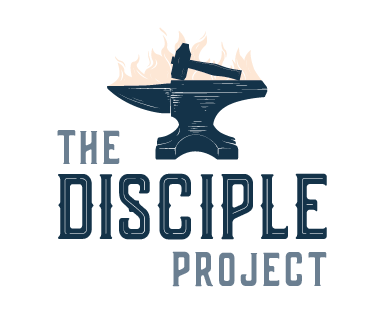After two months without a computer I cannot get back to a steady flow of posts and it could not happen at a better time. Two months ago I joined the Lead Small Book Club and downloaded the study guide. The study is based on the book Lead Small: Creating a Lead Small Culture: Make Your Church a Place Where Kids Belong. I will be working through the small group study questions and posting my thoughts here because, well, I have way too many thoughts for the Lead Small FB page. If you are a part o the Lead Small group please chime in as I will be asking questions out loud and listening to the Holy Spirt for answers. Maybe he’ll use you!
Where my Journey Begins
I have always been a proponent of student-led ministry and so I was stoked when two high school girls came to me to and asked if they could lead a small group bible study. In the fall of 2014 our months looked like this: three weeks of preaching and one small group night. When the two girls come to me and asked if they could lead a study I inverted to process, now it’s three weeks of small groups and one week of preaching.
I wil not be absent though. I will kick off the night, have a verse of scripture, the band will lead worship, I will lead a brief exhortation and then dismiss our small groups to their 40 minute meeting. In addition to the High School small groups we are launching a separate Middle School group for guys and girls that will have small group time within them.
Church Background
Our church is not a small group church. It is not built on small groups, intentionally, but does a great job at Sunday School and caring for people through Care Groups. Care Groups usually meet quarterly to do something fun.
My Current SGL’s
In creating this switch I have been preparing our leaders to start off being facilitators. They are in the room to help the students lead the study and maybe do the opening. Otherwise, their role is to listen, keep the discussion on track and in play, and be available if the student discussion leaders need help with a hard question.
Eventually I see our leaders being a lot like our Care Group leaders as far as doing ministry. We will be going slow, listening to suggestions, and pivoting where we need to.
The Study Questions
I am not going to answer every question here but I’d like to make a point about a few of the more difficult questions to answer from this section.
How do you nurture ongoing relationship with parents?
This is a tough one for any youth minister but probably needs the most evaluation. Parent ministry, to me, is two way street. Parents have to want to and youth pastors have to be ready to reciprocate. After many attempts at a Parent Meeting once a quarter and seeing dismal results, I stopped doing them in favor or communicating on social media and e-mail. To be honest, after six months, no one has said anything. What meaneth this?
I believe the answer is what it always is: We are too busy and we trust you with whatever you do. Cultures like this need more than a lone voice in the wilderness. I cannot change things on my own because it only leads to frustration and burn out. I am happy to be patient, minister where I can and where I am allowed, until parents want to change the culture of how they are ministered to.
I am wide open to answers here. Please feel free to leave comments below.
How do I currently minister and nurture families?
I primarily do this through e-mail, one on one conversations, and FB article posts. I have parents join us on trips and I ask them how I can pray of them as well as if I can pray with them.
How do you monitor what is happening in kids’ lives on a weekly basis?
This sounds like a super invasive question and I am not sure it’s my job to “monitor” our teenagers behavior. Maybe they meant, “pay attention”. If so, I can do this and feel comfortable with it. I pay attention, though not in a stalker way, to social media posts and pics as well as casually listen to what kids are talking about. I pay attention to trends in media, culture, and sometimes fashion.
We have great volunteers. They engage kids in conversations and do a fair job of listening. Our challenge lies in agreeing on “how” we do things not why. Each leader has to be willing to morph with the changing youth ministry as we gain kids and and seek to find them a place and and opportunity to build relationships our adults I think we are on course with that and we’ll pivot where we need to.
I think all of us can can do better and some two of those ways are:
Discipline and Correction
Making and taking time to fearlessly and lovingly sit a kid down and ask them to open up about about what is going on that is causing certain kinds of behavior.
Treasure Hunters: Finding Roles and Responsibilities
Adults who can spot a kids natural or spiritual gifts and help place them in a place where they can thrive or create an opportunity where one does not already exist.
Last Question:
Think about your staff and volunteer teams. Who is (or who should be) responsible for each of these three behaviors?
IMPROVE THE STRUCTURE: This is my role as I am the lead architect.
EMPOWER THE LEADER: I do this weekly through our Tuesday Training e-mail and our once a month meetings.
CREATE THE EXPERIENCE: This is everyone. Each small group can create the best opportunities to connect adults to kids and kids to kids.
This is all for now. Tomorrow will be my reflections on week two.
Your Turn
If you are currently working though the study which question(s) are you wrestling with the most?
What challenges do we share when it comes to nurturing parents?
How do yo “pay attention” to the lives of your students?

